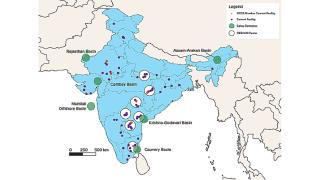One way of reducing the fossil fuel requirement in clinker production is through the use of alternative fuels (AFs). Walter Materials handling, part of the ATS Group, looks at one plant that has invested in the burning of end-of-life tyres to reduce its thermal energy costs, lower its CO2 emissions and tackle tyre disposal issues. By Basri Ogut, Walter Materials handling, France.
The use of alternative fuels (AFs) as a method of reducing thermal energy costs is well documented in the cement industry. In Germany, the Czech Republic and Poland, the substitution rate of using AFs in total energy consumption is over 60 per cent.1 Meanwhile, some cement plants in the EU have already achieved thermal substitution rates of close to 98 per cent, enabling them to play a significant part in conserving non-renewable resources, reducing CO2 emissions and progressing towards a circular economy.
